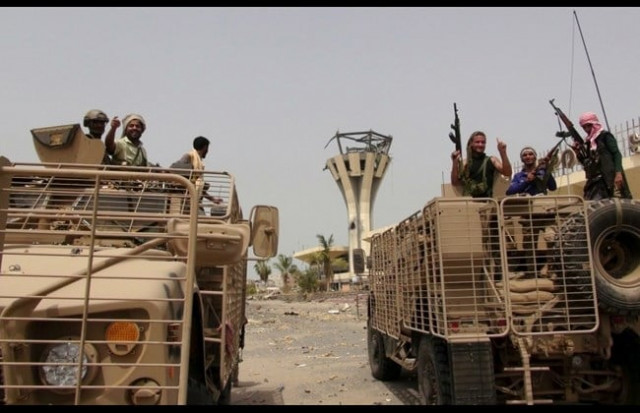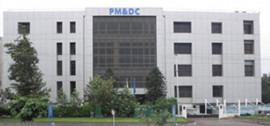
Their seizure of the Al-Anad base in a 24-hour assault using heavy armour supplied by the coalition came after hundreds of Gulf Arab troops landed in Aden to bolster the loyalist fightback.
Hailing victory in the battle for Al-Anad, the defence ministry vowed there would be no let-up in the war against the Shia Huthi rebels and their allies until the authority of exiled President Abedrabbo Mansour Hadi was restored over the whole country.
The Al-Anad base, 60 kilometres north of Aden, is strategically located on the main road north towards both the battleground third city of Taez and the rebel-held capital Sanaa.
The vast 15 square kilometre (six square mile) complex housed US troops overseeing a drone war against al Qaeda in Yemen until shortly before the rebels overran it in March.
Its loss is a major blow for the rebels, whose leader Abdulmalik al-Huthi claimed just Sunday that their ouster from Aden after four months of ferocious fighting was just a "short-term" setback that would be reversed.
The loyalists swiftly pushed on from Al-Anad on Tuesday, attacking the rebel-held Labouza army camp 10 kilometres further north, military sources said.
Pro-government sources said that the rebels lost 70 dead and 10 captured in the fighting for Al-Anad. The loyalists suffered 24 dead and 23 wounded.
Officers who took part in the assault said that the rebels had put up "stiff resistance" but that Saudi-led air strikes had helped destroy their armour.
An AFP correspondent saw huge columns of tanks and artillery supplied by the coalition pounding the base's defences.
They were accompanied by large numbers of southern militiamen who formed the core of the resistance to the rebels before the deployment of reinforcements trained and equipped in Saudi Arabia.
The formerly independent south has a large secessionist movement whose supporters have made common cause with the exiled government out of shared hostility to the rebels from the Shia north.
Some of the militiamen flew its flag.
The recapture of Al-Anad is a major boost for the defence of Aden and paves the way for a possible return by the exiled government to the southern port which was its last refuge before it fled into exile in neighbouring Saudi Arabia in March.
On Sunday, hundreds of Gulf Arab troops from the coalition entered Aden with tanks and other armour "to help secure" it, a military source told AFP.
The Saudi-owned Al-Hayat newspaper said 1,500 troops, most of them from the United Arab Emirates, had deployed to the city.
Aden has been devastated by four months of coalition air strikes and fighting on the ground.
Unexploded ordnance and booby-traps planted by the retreating rebels still pose a daily threat to civilians.
Medics said Tuesday that at least 18 had been killed and dozens wounded in the previous 24 hours alone.
Most died in northern neighbourhoods of the city where the rebels made their last stand before pulling out in mid-July.
The United Nations says the war has killed nearly 4,000 people, half of them civilians, while 80 per cent of the 21 million population needs aid and protection.
Nearly 100,000 Yemenis have fled abroad since late March, the UN refugee agency said on Tuesday.
Despite losing Aden, the Huthi rebels and their allies remain in control of large swathes of Yemen, including the capital, which they overran last September.
The United Nations has called repeatedly for a ceasefire and hosted peace talks in Geneva in June. But the talks collapsed without the warring parties even sitting down in the same room.
The exiled government said it would only discuss the rebels' withdrawal from all of the territory they have seized in line with a resolution adopted by the UN Security Council in April.
The rebels said they could not pull out as that would create a security vacuum that would expose them to extremist attack.
Sunni militants of both al Qaeda and the Islamic State group have carried out deadly attacks against the Shia rebels and their supporters, whom they regard as apostates.


1723532431-0/BeFunky-collage]____-(64)1723532431-0-270x192.webp)















COMMENTS
Comments are moderated and generally will be posted if they are on-topic and not abusive.
For more information, please see our Comments FAQ